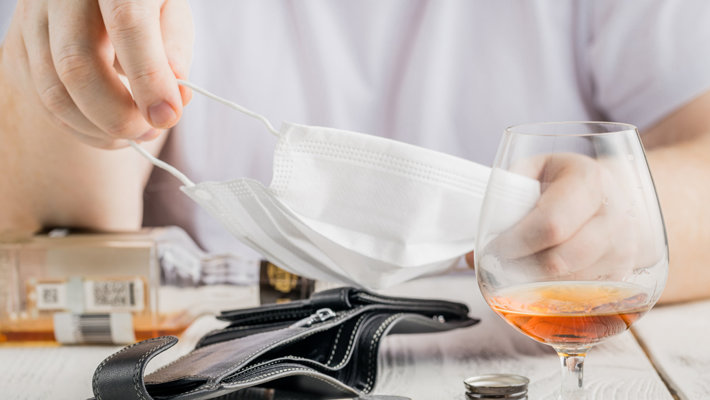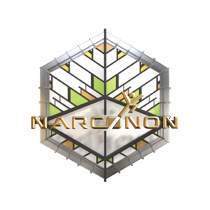How Many Addicts Will Die as a Result of COVID-19?

COVID-19 Disruption—A Deeper Problem For Addiciton
When people think of deaths from COVID-19, they tend to consider only the deaths that are directly caused by the illness. And that is undoubtedly a significant problem, as the virus has claimed tens of thousands of American lives in just a few short months.
But what about the deaths that are indirectly caused by COVID? Of course, when indirect COVID deaths are discussed, most people think of the patients who had COVID-19 but who died from another health complication, such as a heart attack. But what about the people who didn’t have COVID-19 at all, but who died as a result of the pandemic’s effects on other areas of American life?
The full impact of the coronavirus pandemic has yet to be fully realized. While it is easy to keep track of the direct death toll of the virus itself, the mass disruptions caused by the pandemic have created a chain reaction of events that makes it next to impossible to measure the real impact of the virus (at least not yet).

An article in U.S. News recounted Sara Wittner, a Colorado resident who, when the COVID-19 pandemic hit the Denver area, could no longer access the usual support network she had been getting. Sara was not able to meet with her supportive friends or her recovery group, and she wasn’t able to see her medical advocate during the first stage of the COVID-19 pandemic. The result? Sara ended up relapsing and dying of a suspected fentanyl overdose. Sara’s was a life that should never have been snuffed out. She was well on her way to a stable recovery just before the coronavirus pandemic touched down in the States.
Sara was in recovery, though her recovery required ongoing support and help as many recovering addicts do when they first get off drugs and alcohol. As soon as the virus took away her access to that support, her condition declined, she relapsed, overdosed, and died.
In addition to a fair amount of justified sadness over Sara’s death, there are two, critical lessons to learn from it:
- First: The COVID-19 pandemic is much more severe than just the infection rates and the resulting death toll. Those infected and those who die from the illness are only the tip of the iceberg when it comes to the broad impact the virus is currently having on the nation. The virus is causing mass disruption of peoples’ access to care and support networks, which harms vulnerable populations (like newly recovered addicts).
- Second: With the above data in mind, recovering addicts must work extra-hard to ensure they do not fall prey to a relapse. That means finding ways to create strength and resilience in their recovery in a way that does not depend on resources that could be disrupted by COVID-19.The Well Being Trust predicted that, over the remainder of 2020 and into 2021, approximately anywhere from 27,644 to 154,037 people could die simply from the uncertainty, unemployment, and disruption caused by the COVID-19 pandemic. Many of these deaths will likely be caused by drug overdoses and alcohol abuse.
Even if recovering addicts maintain access to their support network during the pandemic, the threatened loss of a support network isn’t the only thing that recovering addicts have to be concerned about. Simply unemployment by itself has a harsh effect on someone who is recovering from a drug problem. A 2017 study from the National Bureau of Economic Research found that, for every percentage point increase in American unemployment, opioid overdose deaths increased by 3.6 percent. That is hugely significant, and it is a powerful indicator of the genuine harm that people face when the economy is disrupted.
Recognizing the Added Risk and Seeking Additional Support to Counter that Risk
Support groups being shut down, having to stay at home, being separated from others, not being able to go to school or work, being stressed and not being able to seek help, worrying about the virus, not being able to exercise as much, etc. These are just some of the effects of COVID-19 on people who are doing their best to stay sober. The pandemic affects everyone differently, with the nation’s at-risk populations being put at even more risk than usual. People who are in recovery from drugs and alcohol stand to lose their hard-won gains during this challenging time if they do not take considerable action to protect themselves.
Recovering addicts should look into support options that they can utilize from home. Is there a way to seek help from a support group, counselor, or medical advocate over video chat, telephone, email, or another form of correspondence? What about help from family members or friends via a phone call, socially-distant meeting, or video call?
Recovering addicts should also use this time to focus on self-care and personal growth. Rather than becoming overwhelmingly depressed and disturbed at a lack of employment or access to social networks, those in recovery might use this time to read self-help books, complete projects around the home, create an at-home meal plan and exercise regimen, etc.
The key here is not to allow oneself to fall into the morass of depression and paranoia that seems so rampant in the country as a result of the pandemic. Those feelings may be justified for many, but they are dangerous for a recovering addict.
The Importance of Getting Help Now
Those who are currently struggling with an addiction to drugs and alcohol must get help now. COVID-19 makes addiction even more devastating and also more likely to result in death. Do not let you or your loved one’s story end in an overdose death. Contact a drug and alcohol rehab center today.
Sources:
- https://www.usnews.com/news/healthiest-communities/articles/2020-06-23/the-unseen-deaths-of-the-coronavirus-pandemic
- https://wellbeingtrust.org/wp-content/uploads/2020/05/WBT_Deaths-of-Despair_COVID-19-FINAL-FINAL.pdf
- https://www.nber.org/papers/w23192
Reviewed by Claire Pinelli, ICAADC, CCS, LADC, RAS, MCAP

